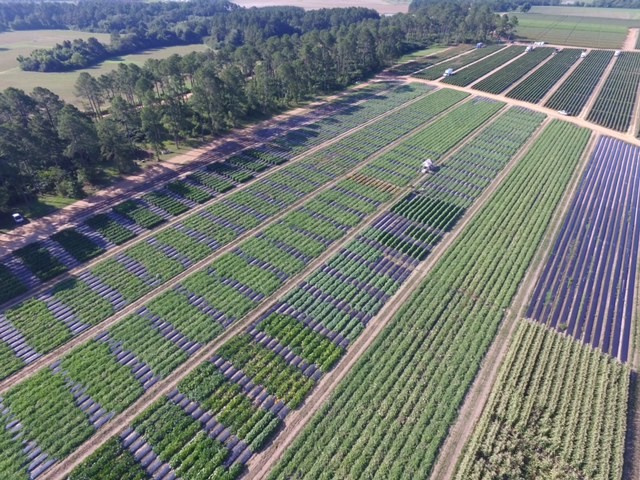U.S.: Georgia testing ground refines crop suitability for Robinson Fresh

Integrated produce and logistics company Robinson Fresh has a few strategic categories it hopes to ramp up in the coming years, but to execute this plan it needs to make sure crops are reaching their full potential in the right regions. As the final part of a three-part series on the group, we caught up with director of organics Ray Griffin to discuss the relevance of a new facility for product development that opened up in the state of Georgia last year.
Melons, dry veg and asparagus - these three categories are a few of Robinson Fresh's key crops of interest for the future; the former involving both large and mini watermelons, and 'dry veg' including peppers, eggplants, cucumbers and squashes.
It isn't just the crops that matter however, but their suitability for growers and ultimately the end consumer. This requires thorough crop testing to make sure farmers get the right yields, size, appearance and flavor.
Robinson Fresh's testing used to be concentrated at a product development center (PDC) in Davis, California, but last year the group opened an additional one in Tifton, Georgia. 
"We have bi-coastal product development centers and what we do there is try to grow different items for innovation to see how we can bring better flavor to the market," Griffin said.
"Our mission is to find new, unique items atypical of the production area in an effort to bring innovative produce to fruition.
"There is both science and art going on here, where we're checking the products for a host of different things like the brix of the fruit and irrigation resistance characteristics if it's a melon, for example."
He said the group kept a lot of documentation on how products develop, the type of climate and the moisture they're exposed to, in an effort to match items with the optimal growing conditions.
"We are trialing 27 different commodity groups with greater than 80 sub-groups within them. In total, over 500 unique varieties are tested," he said.
"Our footprint has approximately 600 plus plots. We operate the PDCs year-round with four growing cycles and the commodity mix changing seasonally. We are also adding organic ground to our PDCs and have begun trials on numerous organic commodities."
"Obviously from a grower perspective you want a crop that’s going to have a good yield, that’s going to be able to withstand pests, so you have integrated pest management."
He said in a lot of cases Robinson Fresh brought customers to the PDCs to see developments and whether products could meet their taste profiles and needs.
The plan is for the facility to help eventually shore up a more consistent supply, year-round.
"When Robinson Fresh gets into a strategic category we do look for continued supply so we may have to grow products in multiple regions throughout the year to keep the continuity of supply strong.
"That’s what our consumers are demanding of us, to make sure we have a bit of redundancy and a bit of continuity.
"So with dry veg we’ll have some in the southeast and some in the west, and we’ll cover the nation that way.
"The Robinson Fresh PDC’s are already providing innovative product to the marketplace. We recently launched Orangetti squash, a hard, thick-skinned squash that is a yellow spaghetti squash variety that is now sold at select retailers."












































